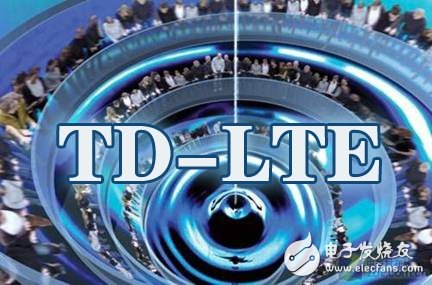Recently, the European Union's anti-dumping and anti-subsidy investigation on Chinese photovoltaic products and wireless communication equipment has aroused great concern both inside and outside the industry. Among them, the double reverse investigation of wireless communication equipment is mainly concentrated in Huawei ZTE. As early as two years ago, the European Union's troubles with two Chinese equipment manufacturers began. Now that China's 4G feast is about to start, the EU has once again made troubles. On the surface, it is provoking trade disputes with China. In fact, it is threatened by anti-dumping and anti-subsidies to win more TD-LTE market share for European companies in China. It is still unknown whether the double recurrence is "working." However, according to netizens, foreign companies have set clear quotas for China Mobile's bidding, with Ericsson exceeding 13%, Nokia Siemens exceeding 11%, and Aran exceeding 13%. If the target is fulfilled, the share of domestic manufacturers such as ZTE, Huawei, and Datang Mobile will suffer a large decline. In the era of TD-SCDMA, the industrial pattern dominated by "Greater China" will undergo drastic changes. "Seven countries and eight systems" may become a new situation in TD-LTE. On one side is the trade policy game between the two major economies in the world, and on the other side is the future of TD-LTE, which represents the dream of independent innovation. No matter how the final trade dispute is resolved, TD-LTE should not become a victim of policy games. Domestic manufacturers pick big beams to benefit the healthy development of TD-LTE According to the European Commission ’s think tank dealing with economic and trade relations with China, the European Commission once said openly and honestly in its “venting†with China that one of the prerequisites for it to give up its investigation is that China guarantees European telecommunications equipment vendors in the corresponding market in China At least 30% market share. In the past, some insiders have also given news that TD-LTE completed the test on May 14 and began preparations for the tender report before the Dragon Boat Festival. After the tender return in early July, TD-LTE will complete the tender in August and announce the results and share distribution. The European Union's "investigation" choice at this time point obviously has its deep meaning. Before the Dragon Boat Festival, the netizens reported that the bidding report preparations had not yet begun: foreign companies had set clear quotas for China Mobile ’s TD-LTE equipment bidding, of which Ericsson exceeded 13%, Nokia Siemens exceeded 11%, and Aran exceeded 13%. If the goal is fulfilled, the overall share of international manufacturers (basically European equipment manufacturers) will exceed 35%, while the shares of domestic manufacturers Huawei, ZTE and Datang Mobile will suffer. As one of the global 4G standards, the commercial network construction of TD-LTE naturally lacks the participation of international manufacturers, which is conducive to the adoption of TD-LTE's superior technology and equipment, and is also conducive to the integration of China's TD-LTE with the world. However, TD-LTE also represents the hope of independent innovation in China. The increase in the share of international manufacturers will directly lead to the decrease in the share of domestic manufacturers, which will dampen the enthusiasm of the latter. You should know that as early as the TD-SCDMA era, Huawei, ZTE, and Datang Mobile have all made continuous and substantial investments. In the TD-SCDMA stage, foreign manufacturers have always adopted a wait-and-see attitude, and even OEM domestic equipment manufacturers have adopted There has been no in-depth study. If too many international manufacturers participate in order to connect TD-LTE with the international standard FDD LTE in the future, then the actual factors indicate that this is not necessary. Nowadays, the four major TD-LTE operators in the world can only choose TD-LTE because they have TDD spectrum in their hands. The progress of China's TD-LTE will only affect the global TD-LTE development speed, but will not affect the FDD LTE industry, and will allow operators holding FDD spectrum to switch to TD-LTE. In the global TD-LTE industry, China Mobile has the largest deployment scale and will account for more than 2/3 of the global scale in the future. Chen Haofei, an analyst of CICC Telecom, once said that since the main market of TD-LTE is in China, the development of China's TD-LTE should be based on considering its own interests, doing its own things, and taking itself as a benchmark to lead the world , Instead of exporting technology, affects the world. Some insiders also pointed out that the TD-LTE industry dominated by China is still immature, and there is no TD-LTE commercial scale overseas. The main strategy of international manufacturers overseas is FDD LTE. At the same time, many international manufacturers are still discussing the use of TDD As an auxiliary network operation of FDD, it will crack down on the survival space of TDD. Therefore, only the leading industries and market development of domestic enterprises representing China's interests can guarantee the healthy development of TD-LTE. Portable Power Station,Jackery Battery,Portable Charging Station,Portable Power Station For Camping Power X (Qingdao) Energy Technology Co., Ltd. , https://www.solarpowerxx.com
April 06, 2024